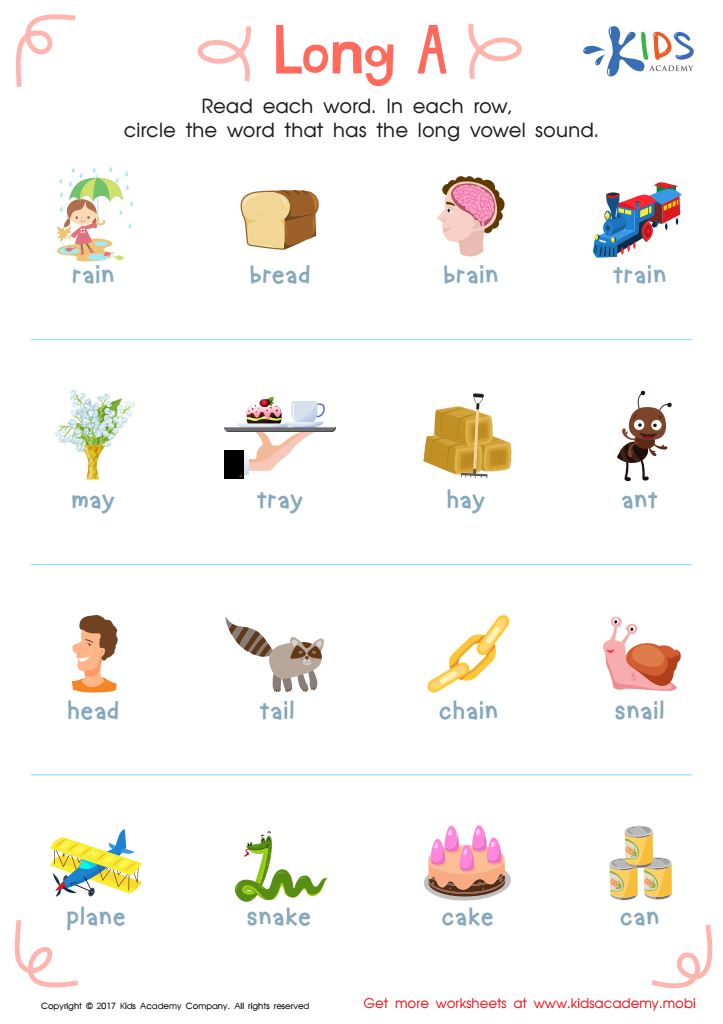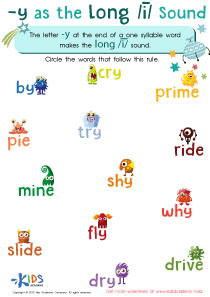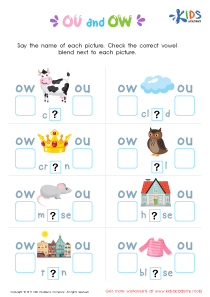Normal Long Vowels Worksheets for Ages 6-8 - Page 2
30 filtered results
-
From - To
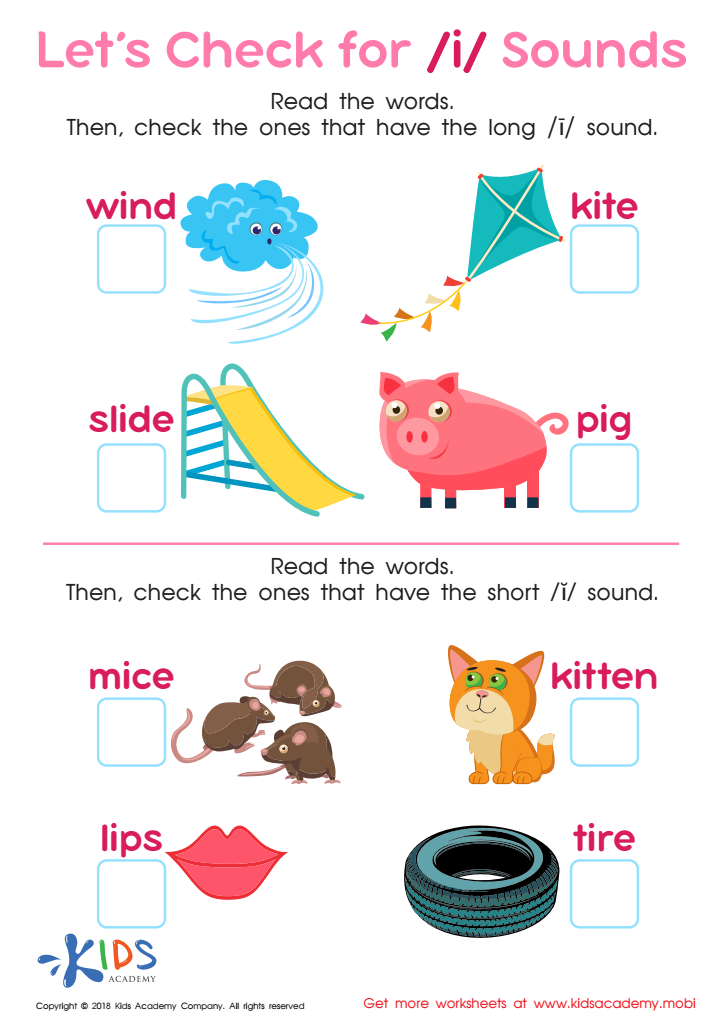

Let's Check for «i» Sounds Worksheet


Long and Short E Worksheet
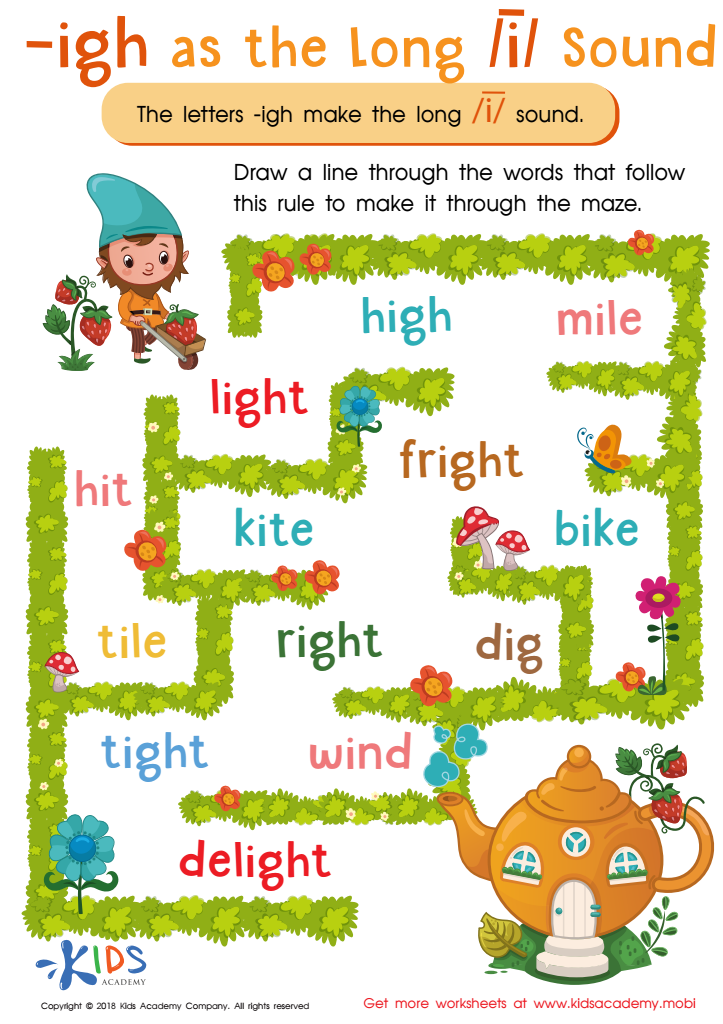

Reading: IGH as Long I Worksheet
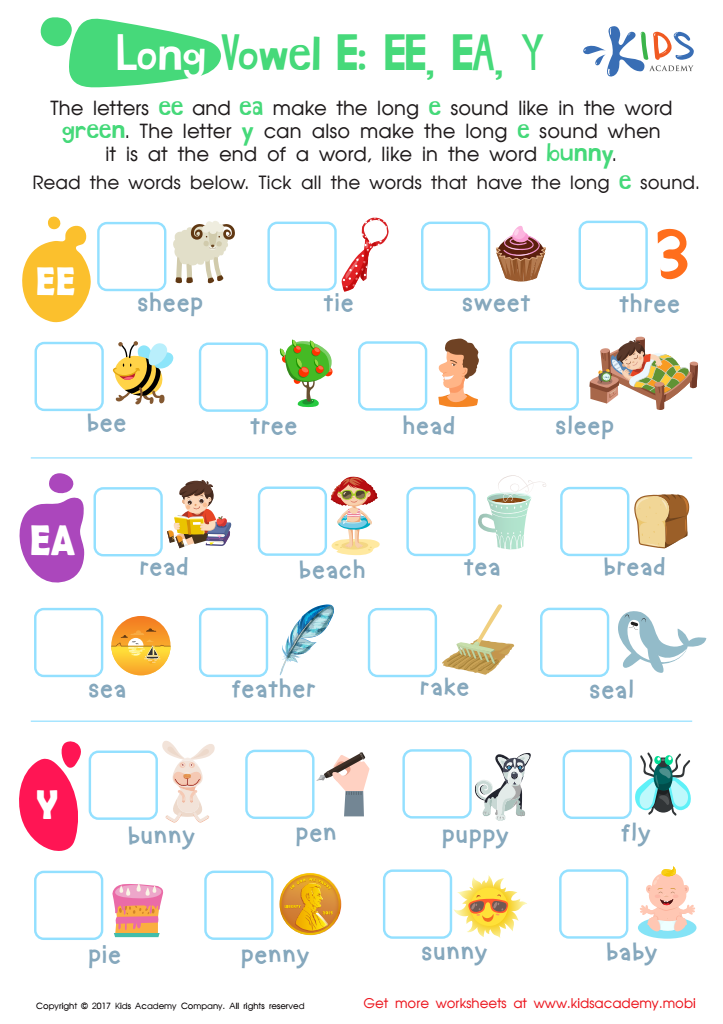

Long Vowel E Printable
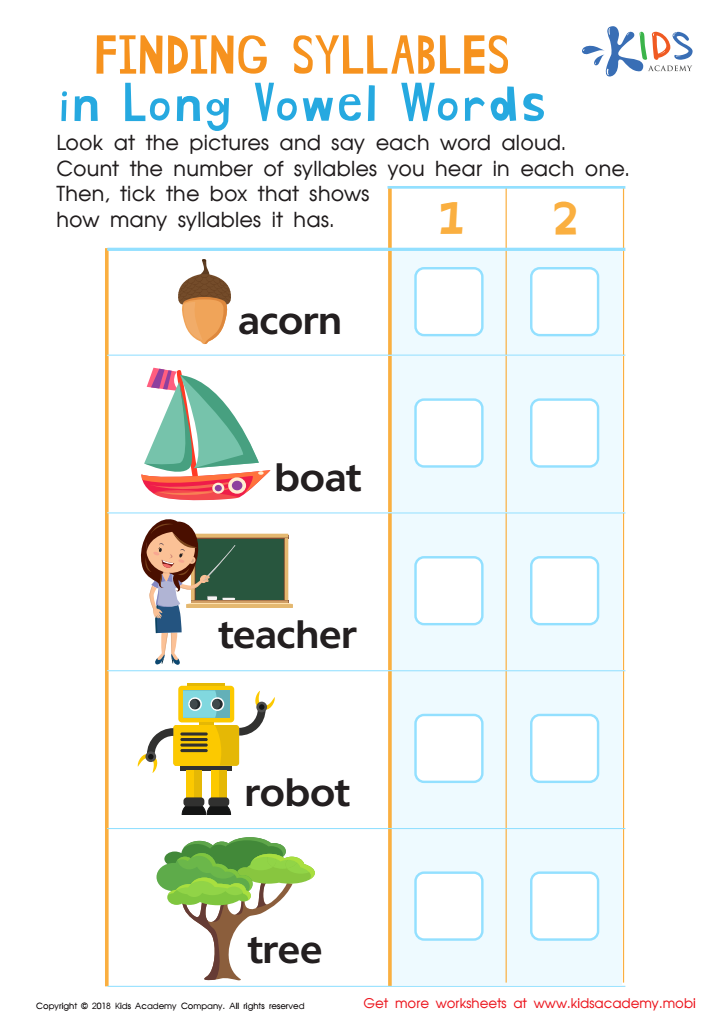

Finding Syllables in Long Vowel Words Worksheet
Normal long vowels are crucial for children aged 6 to 8 as they form the foundation of reading, writing, and overall language skills. Long vowels—such as the sounds in "cake," "bee," "kite," "oat," and "use"—play a significant role in phonics and decoding. Understanding these sounds helps children recognize word patterns and contributes to fluency in reading.
When parents and teachers focus on long vowels, they are enhancing children's phonemic awareness, a critical skill that allows them to manipulate sounds in words. This understanding aids in spelling and boosts confidence when tackling new words. Moreover, early mastery of long vowels supports comprehension, ensuring that kids can grasp the meaning behind the text.
In a world rich with written communication, the ability to read and understand words accurately is vital for academic success. As children transition from learning to read to reading to learn, a solid grasp of long vowels will pave the way for a lifelong appreciation of literature and effective communication skills.
By prioritizing the instruction of long vowels, parents and teachers foster a love for reading, increase literacy skills, and set children on the path to academic achievement.

 Assign to My Students
Assign to My Students
